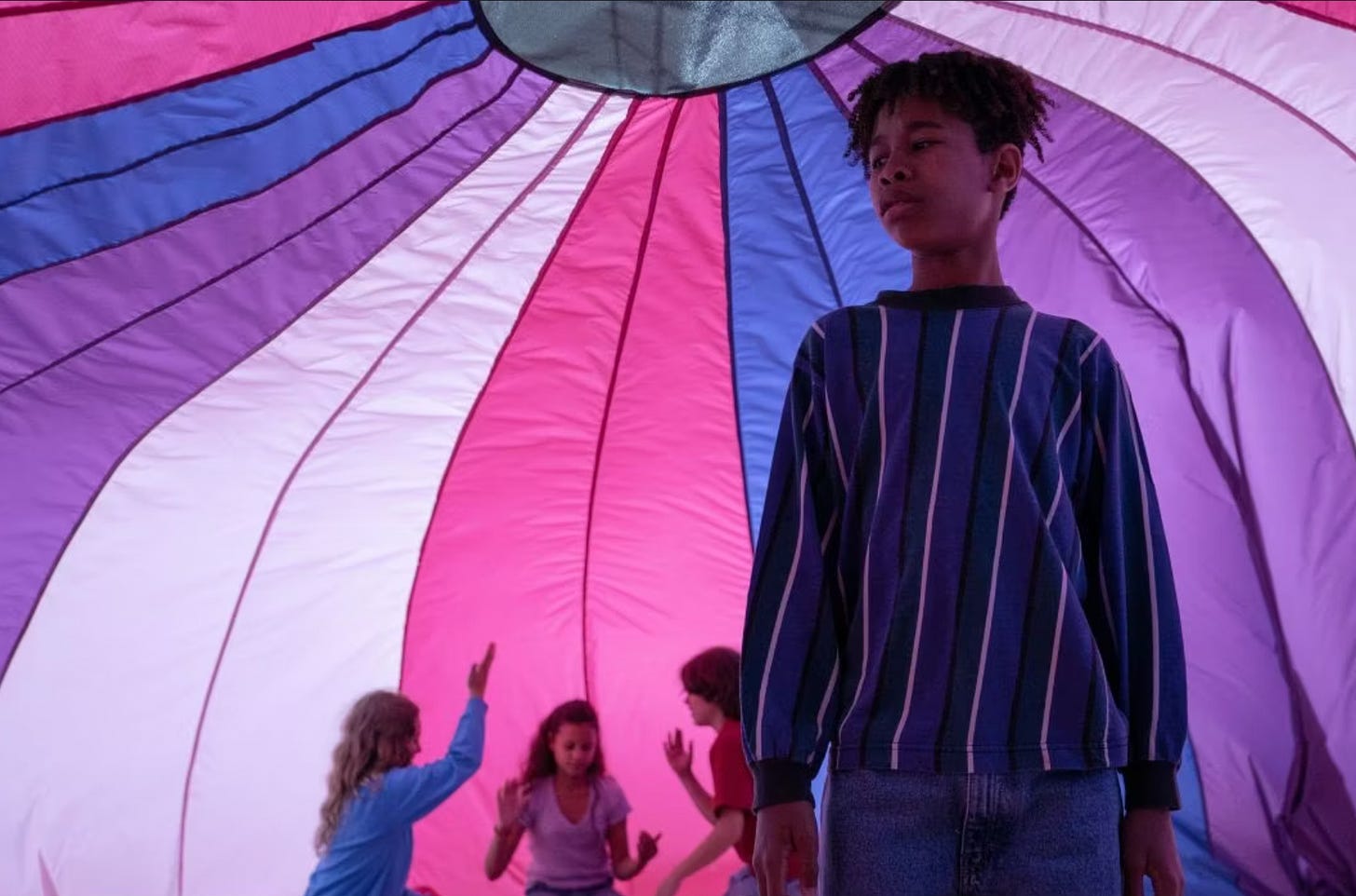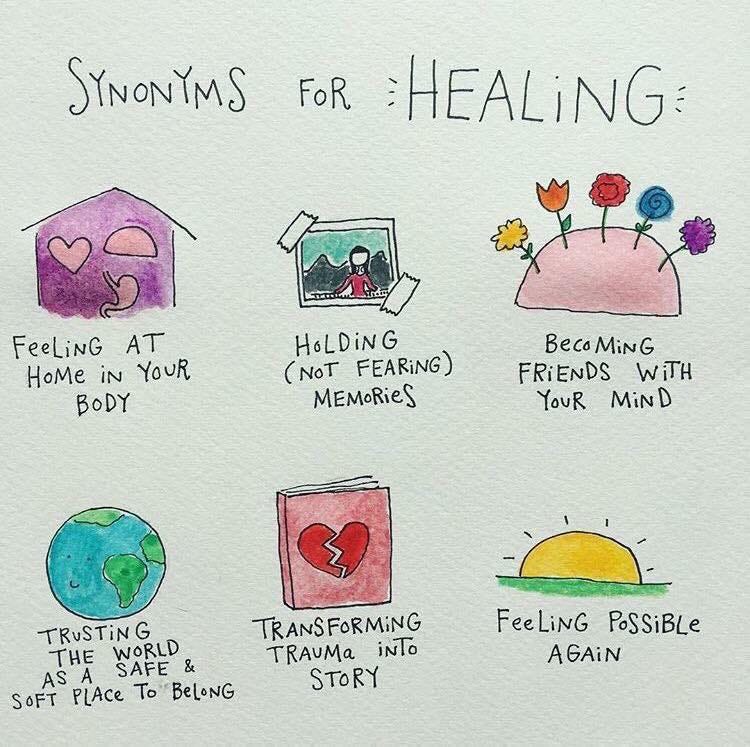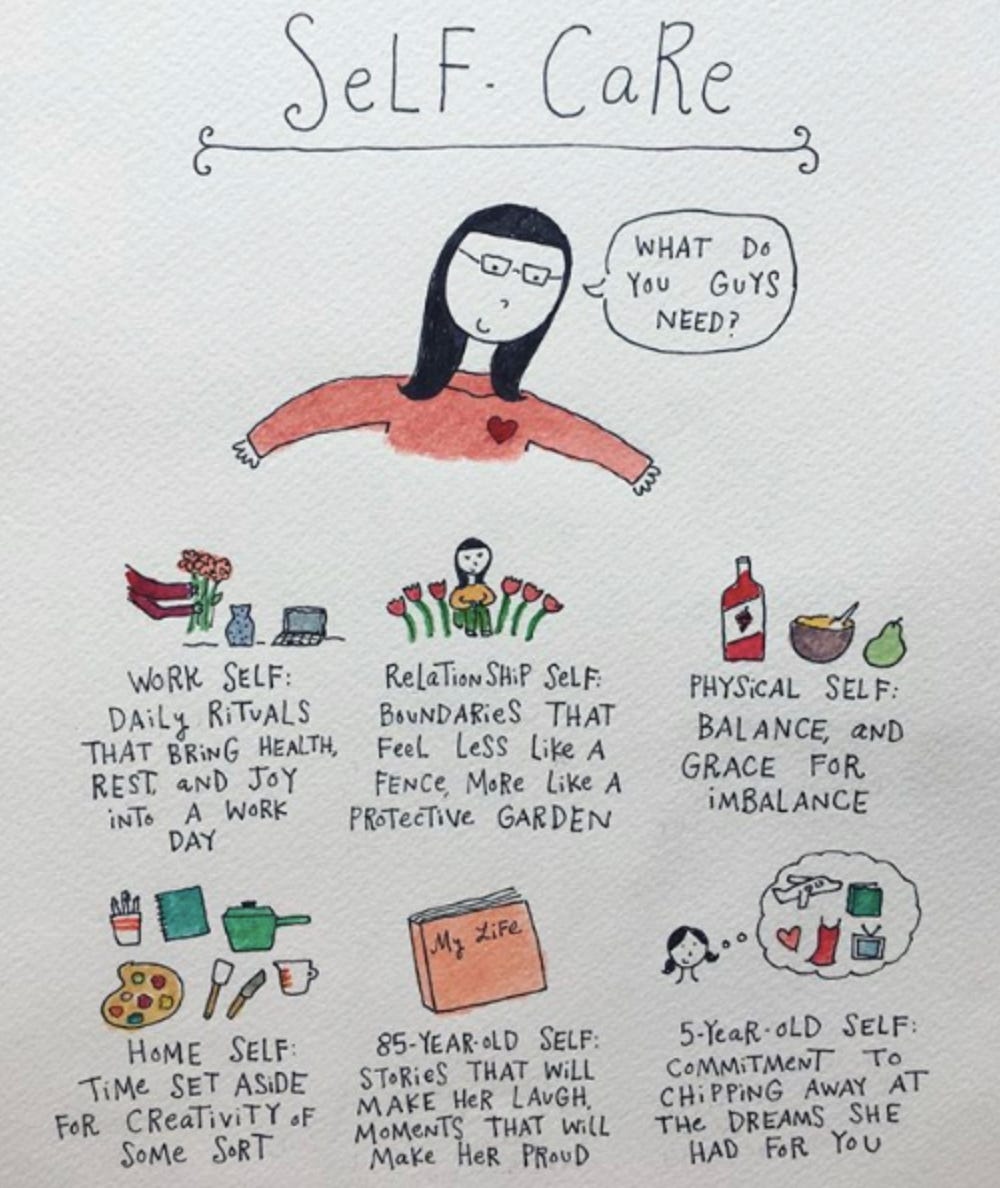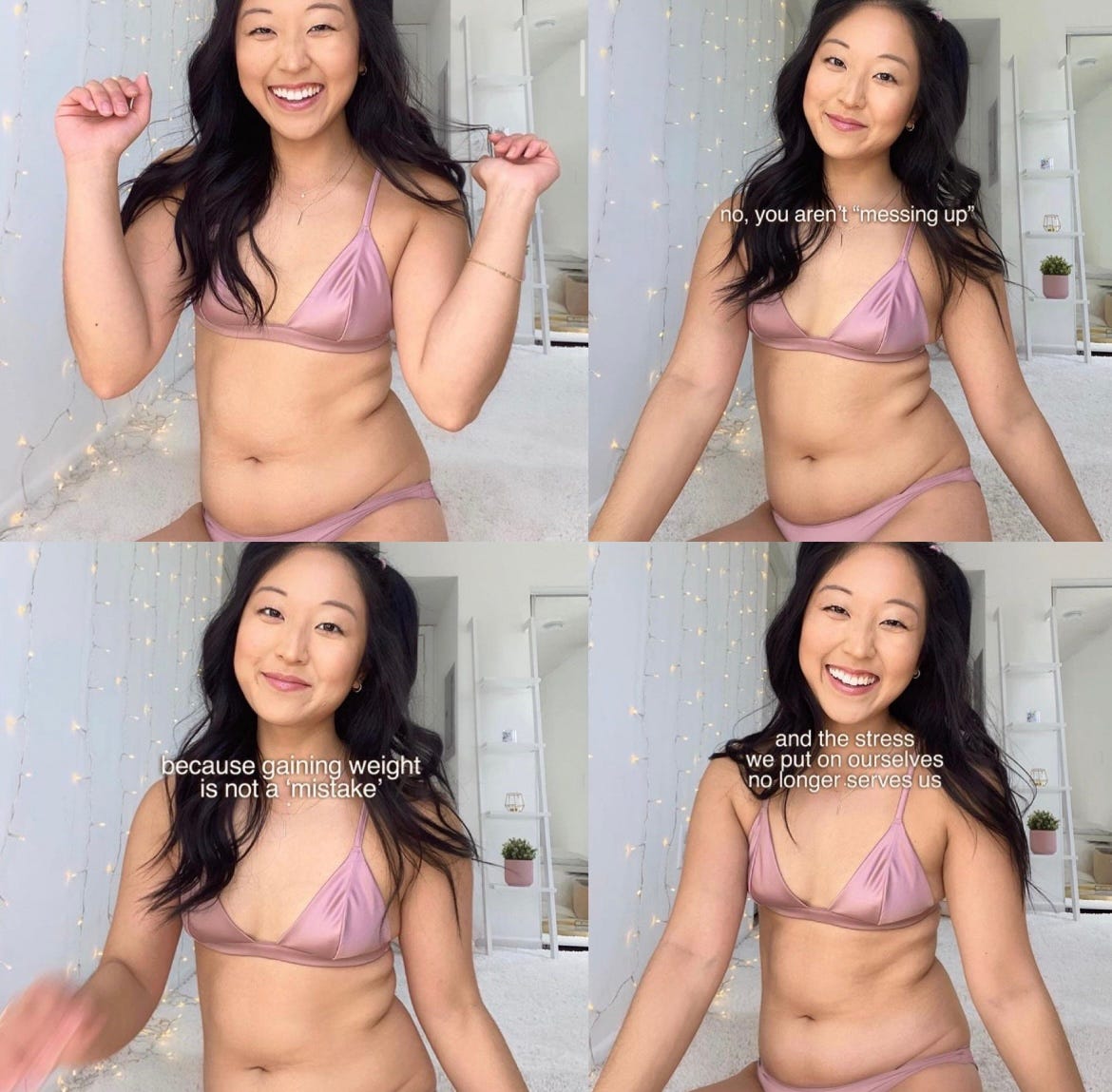I finally watched a movie I’ve been obsessed with for months.
It’s called ‘I Saw the TV Glow,’ and it took its sweet time to become available for streaming. And I took my sweet time getting in the right mood to watch it, because I knew it would emotionally knock me out for days…and that it did.
I’m glad I knew going into the film that it’s a haunting allegory about transgender identity, and the actual horror of having to leave the world you’ve known in order to transition. (The plot would have totally confused me otherwise.)
Horror films are overwhelmingly white and overwhelmingly cis-straight. They are also mostly based in real-world fears, many of which white/cis/straight people don’t have personal experience with.
Take Duane Jones, the first Black lead actor and hero of a horror film, Night of the Living Dead (1968). While the director claimed colorblindness and said Jones was simply the best actor for the part, Jones himself couldn’t escape the very real terrors he faced outside the film set as a Black man in the 60s. He would later recount stories of leaving a set where he spent the day fighting off fictional zombies, only to fight off real-life mobs of humans on his drive home.
So, I was curious which real-world fears would make their way into a scary sci-fi 90s-nostalgia-bomb exploring the terror of dysphoria, or, as the director said, “the egg crack: a term for the moment in a trans person's life when they realize their identity does not correspond to their assigned gender.”
Writing about this extremely weird and wildly daring movie won’t begin to do it justice, but I want to talk to you about the moment in the film that brought me to immediate tears.
Of all the shocking, tragic moments throughout the story, this one really got me…
In the throes of dysphoria during late adolescence, the main character Owen is violently vomiting in the bathtub, watched over by his distant and judgmental father.
Owen is retching, sobbing, and screaming:
“THIS ISN’T MY HOME!!!”
Ohh how badly I wanted to lift that baby off out of the screen and on to my couch when I heard his cry.
Those words pierced the middle of my belly, a place that I’ve angrily poked at and pricked countless times with that same sentiment.
I don’t know what it’s like to be trans, but I do know what it’s like to feel homesick in my own body.
I know what it’s like to scream at my own body and say, “This isn’t my home!”
And I’m willing to bet that most of us do.
Particularly in certain pockets of Western society, we are practically forced to disembody if we want to have any chance at fitting in, keeping a job, getting accepted, even being seen as fully human.
It is so outrageously not normal and not okay that we buy “hunger-reducing” gum so that our bodies can’t tell us when to eat, and so messed up that we follow a labor schedule that was created for machines, and so upsetting that things like periods and depression and pregnancy are seen as pesky hindrances to be hidden and worked through rather than honored with rest and support.
My first rule at any workshop I teach is…
You are a body.
This means: Make yourself easeful, drink when you’re thirsty, eat when you’re hungry, go to the bathroom when you have to go to the bathroom, squirm, sleep, sulk, slouch…whatever your body is nudging you to do.
Your eyeballs, your choice: close them only if you feel safe to do so. Use a laptop if that’s better for your brain than a notebook. Lie on the floor if that feels better than sitting.
The worst thing I could hear from an attendee at the end of a retreat is, “I was uncomfortable the whole time.”
I say You are a body because I never learned that I was a body.
Well, not for decades. And I want to pass that vital information along to others, especially those who consider themselves creative, i.e. people who “live in their heads.”
I am a product of a society that severs the mind from the body (a concept invented in Ancient Greece, counterintuitive to every other culture of its time). I live with mental disorders that want me to believe my intrusive thoughts are more pressing than any cue my body is giving me.
And, perhaps most affecting, I came of age in the 2000s during the reign of terror that was low-rise jeans, when my high school health teacher earnestly taught us to replace meals with low-carb cereal to lose weight.
So, naturally, I did not feel at home in my body for so long.
Unlike the character Owen, my bodily disconnectedness didn’t come from my own wise intuition within myself; it came from commercials for SlimFast.
I’ve known people who learned, despite all the conditioning against them, to love and accept being their bodies. I wanted that, but it felt like such an abstract concept, as close to my reality as those depressing banners in hip-aspirant coffee shops that say “Everything is going to be okay.” What does a banner know!?!!!
I could *see* other people joyfully living as their bodies, I could mentally work out how it *might* be logically possible to do so, but a wise maxim somehow attributed to both Brené Brown and “Papua New Guinea Proverb” says:
‘Knowledge is only a rumor until it is in the muscle.’
And the rumor of embodiment had yet to spread to my muscles.
It happened, but over time.
It was a lot of time spent with the newsletter, teachings, and friendship of Jamie Lee Finch, who reorganized my neural pathways by referring to her body as a “she” rather than an “it:” a living being with needs and wants, rather than a thing to be dominated.
She has a course called Your Body is a Person that I FIERCELY recommend!!
It was a lot of time learning to love life—not just my life, but the existence of any life on earth. The more I cared for living things and their living-thing-ness, the more I could care for myself the way I would a bug who had unknowingly crawled into my kitchen: worthy of protection and forgiven for its bugness.
Subsequently, I learned to love signs of life: eye wrinkles, rolls of fat, chubby cheeks, jiggly arms, laugh lines, stretch marks, cellulite dimples, and colorful veins…all signs of vitality, age, changes, growth, and aliveness.
It was a lot of time spent asking and answering the question:
Why did your soul choose your body?
When most of us hear the word “body,” we might immediately jump to body image—what our body looks like to others.
But what are all the particularities of the body? Why did this soul want to inhabit this particular physical form?
Why did my soul choose this body? A body on the move, who runs fast, walks quickly, cartwheels out excess energy, and metabolizes experiences and feelings almost instantly? (And picked a husband who is the exact opposite, and thus is learning to relax and ponder methodically for the first time :).
A body who adores sweets and all indulgent things, craves color, would live in water if it were possible, gets sick a lot, can’t forget sad or scary images, and smiled non-stop from birth? A body allergic to chickpeas and cats but can’t quit either of them, a body intolerant of heat and tolerant of pain?
Asking, answering, re-asking and re-answering this question has guided me toward my favorite ways of eating, exercising, socializing, and just neutrally existing on a Tuesday afternoon.
I think about what my soul will miss about being in my body when die.
I’ll miss poking at and squishing my stomach rolls in the bathtub as I have since I was a kid, making funny faces with my belly button as the nose and enjoying the satisfying squish of fat not constrained by clothes as I twist around in search of my loofah.
I’ll miss squinting one eye at a time to make the object in front of me move around, a favored bored-in-church activity.
I’ll miss running my fingernails gently across the sensitive spread of my inner forearm and then satisfy the tingle with a good scratch.
I’ll miss how my bare feet scrunch up a patch of damp grass, how my hamstrings enthusiastically prepare for lift-off when I stand up, how a cold beverage shimmies down my chest, and how my Achilles sighs with pleasure when I press my toes onto the edge of a stair step and let my calf drop behind.
I’ll miss smelling the clothes of people I love. Hearing a dull pencil scribble on paper (I pray my grandchildren will get to experience the antique contentment of filling out out a form). Tracing the inside of my ear with a Q-tip. Applying blush. Getting my teeth cleaned (yes). Making myself get even sleepier before a nap so it will feel extra good to doze off. Swimming in a cold lake. Trying to stifle a laugh when it’s not appropriate to laugh, which makes me laugh even harder. Riding a bike and pretending it’s a horse. Riding a horse and pretending I’m an explorer. Michael Jackson songs. Twirling.
The first time I realized all that was the first time I really felt at home here.
I know what it’s like to hate this home and I know what it’s like to love being here.
I know what it’s like to feel my body as a Brutalist office building made of concrete walls and right angles, restrictions and doors where I didn’t know the entrance code.
And I know what it’s like to be in my body as a cozy cabin on a lake, next to a forest but not the kind that gets scary at night, and somehow all in the middle of a lavender field.
Toward the end of I Saw the TV Glow, we get a glimpse of what being at home might feel like for Owen.
It’s a moment of euphoria for character and viewer, but the kind of settled euphoria that you get when you reunite with your best friend or greet your pet upon arrival. Like, OH YEAH, THIS!!!! The ecstasy of familiarity.
I imagine that’s how my cat feels when she stretches her long body and flexes her paws, a thrilling reminder that she is a cat.
When I splash around a pool, I am thrillingly reminded that I am a Mari.
Owen wasn’t necessarily born in the wrong body, but he was not able to be fully at home in his Owen-ness.
And that’s the case for so many of us (all of us?) who aren’t invited to be fully embodied because of some messed-up message or another.
I think of my dad, whose teachers beat him whenever he slipped and used his dominant left hand in school.
I think of my friend, a Black man with the personality and demeanor of a newborn kitten, who goes to great lengths to make his body ‘appear less threatening’ in certain spaces (sometimes by carrying a Whole Foods tote, a detail that would be funny if it weren’t actually horrible).
I think of 5-year-old girls who know what dieting is.
I think of graduates who change their natural hair texture to look like somebody’s idea of “professional” for a job interview.
I think of people addicted to substances that continually disconnect them from feeling at home.
I think of how many times I got teased for showing emotion.
I think about how many times I went into a toy store and never once wondered if I’d find dolls that looked like me. On any show, in any magazine, I see bodies that resemble mine. I think about what it’s like to not have that experience, and it’s hard to imagine, but I think about it.
I think of countless ways that our bodies are called too much or not enough, when we’re all just ever-changing living things who so deserve to live comfortably at home in our full us-ness.
At this moment in time, I feel more at home than I ever have in my body. I’m many pounds and a couple sizes bigger than I was last year at this time, which has historically made me feel disembodied, but I’m deluged with gratitude to report that I feel so cozy, so relaxed, so at home here.
A few very practical reasons why:
*Lots and lots of strength-training (specifically SolidCore a few times a week which used to scare me but actually works super well for my me-against-me goal-setting mentality)
*…And feeling that strength when I dance, which is my favorite stress-releaser and embodiment practice!
*Fueling, delighting, and satisfying my body with flavorful vegan food that never requires me to create cognitive dissonance between what I’m eating and what I value
*FILLING my internet to the brim with images of beautiful women who keep it so real when it comes to their magical bodies (I love 1, 2, 3, and 4 who happen to share my body type, but there is so much more representation out there! Put your height/weight into TikTok and I guarantee you’ll find a gorgeous mirror). I also look at this Reddit community’s ‘Sunday Sanity’ posts every morning to set the day on a fun and body-loving note (this video was a recent fave).
*Speaking about weight gain as a neutral, natural, normal thing and not a source of shame or something to change. I have cute rolls and a brand new dress number size—exciting! Like this adorable gal (I look at this constantly):
*See also: signs of aging! When I mention my lines and wrinkles, I really try not to caveat the conversation with any plans to mitigate them. I’m not at the “I’ve earned them!” level, but I’m definitely at the “This is what a body does” level.
*Getting extremely bored of self-criticism. The biggest waste of time. Snore. Snooze. I’m dying of apathy. We’ve got a planet to save! We’ve got pasta to eat! We’ve got a WEALTH of new pop music to dance to!
*Taking note of whenever I enjoy being a body: the way my back streched just now, and my face tightened with glee, for example. Think about the last time you felt embodied, and do that more often. (I’m going to take a wild guess that you weren’t on your phone when it happened ;)
*Marveling at others: I remember the week I returned from living in a homogenous area where everyone basically looked and dressed the same (as in, all their stick figures would be identical). I was on the train in DC and nearly started bawling because everyone was just so dang BEAUTIFUL: their body types, their skin colors, their hairstyles, their outfits, their mannerisms…I could barely stand the onslaught of human glory.
It helps to get a little guidance. It helps to have a few mirrors. It helps to re-train your brain to recognize beauty in all forms, and it doesn’t take long.
And for me, this week, it helped to watch a story that reminded me how far I’ve come in order to return home—and how badly I wish that everyone could share that journey.






Joyful and beautiful. Thank you for this!
This is a fabulous piece. Thank you!